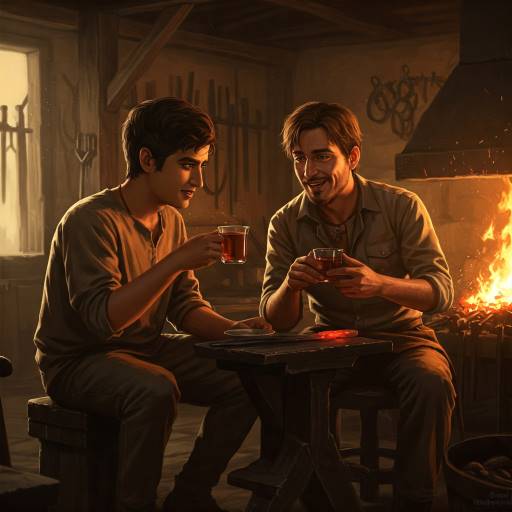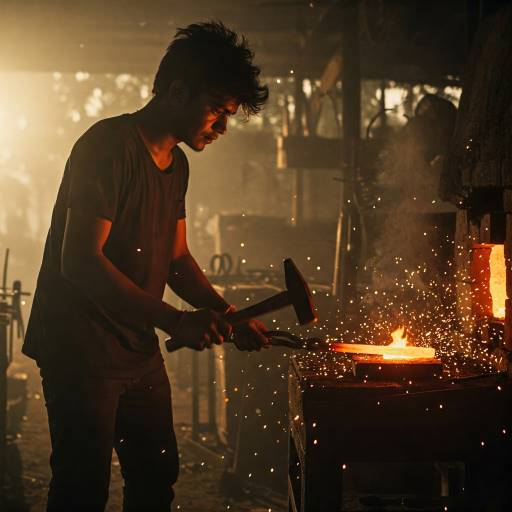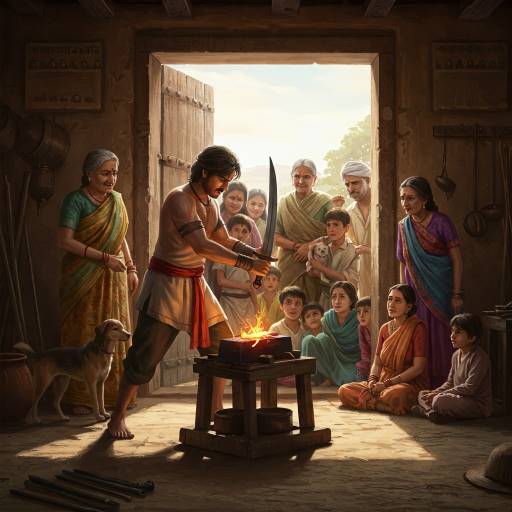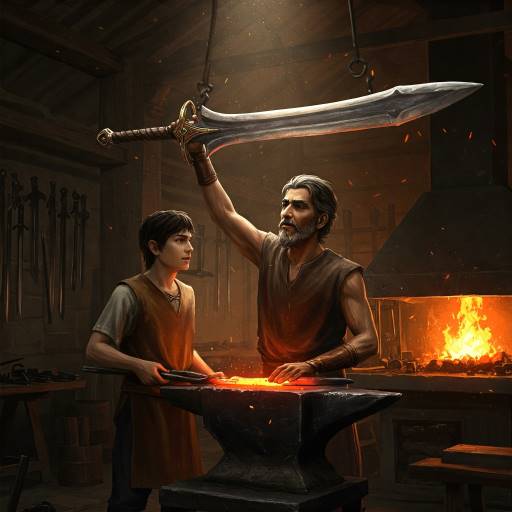
Success Quote: “Do not wait to strike till the iron is hot, but make it hot by striking.” attributed to William Butler Yeats, was an Irish poet, dramatist and writer, and one of the foremost figures of 20th-century literature.
Deeper Meaning of Success Quote
The quote — “Do not wait to strike till the iron is hot, but make it hot by striking” — is a metaphor about taking initiative and creating your own opportunities instead of waiting around for the perfect moment.
Here’s a breakdown:
- “Do not wait to strike till the iron is hot”
This part suggests that if you wait for ideal conditions before you take action, you might wait forever. Many people delay starting because they want the “perfect timing.” - “But make it hot by striking”
This flips the idea on its head. It says: act now — and through that action, you’ll create the right conditions. Just like a blacksmith heats metal by striking it repeatedly, effort and persistence create momentum.
What it really means:
- Don’t wait for motivation — get moving, and motivation will follow.
- Don’t wait for the perfect situation — take action and shape the situation into something great.
- It’s about being proactive, persistent, and courageous.
Basically, you are the spark, not the situation. 🔨🔥
Here’s a story inspired by Success Quote “Do not wait to strike till the iron is hot, but make it hot by striking.”
Success Story: “The Forge of Destiny“
In the quiet village of Vaidra, nestled between rugged mountains and ancient forests, lived a blacksmith named Aarav. He was young but skilled, his hands trained by his father, who had been the village’s master smith before him. Aarav inherited the forge, the tools, and the legacy. What he hadn’t inherited, however, was the confidence to create something of his own.

Aarav’s Silent Forge:
Day after day, he fulfilled small orders—horseshoes, nails, tools for farming. His work was steady, clean, and efficient. Yet deep inside him, a fire flickered—a dream to forge a legendary sword, not just useful, but unforgettable. A weapon fit for a warrior, a king, or a story passed down for generations.
Still, Aarav waited. He told himself he was gathering inspiration. He blamed the weather, the mood, the timing. “The moment will come,” he whispered, over and over, as if the right moment was something that would knock politely on the forge door.
Weeks turned into months. He walked past the untouched steel bar hanging in the corner—his “someday” project. Every time he approached it, his thoughts flooded with doubt. What if I ruin it? What if I’m not good enough? What if I try, and the result is ordinary?

The Old Traveller’s Visit:
Then, one stormy evening, an old traveler limped into his shop. Cloaked in worn fabrics, the man looked half-soaked from rain and half-burned from the road. Aarav, out of habit and kindness, offered him warmth and tea.
As they sat near the forge, the old man looked around. His eyes landed on the pristine anvil, the clean tools, the unused steel in the corner.
“You’ve got a quiet forge,” the traveler said.
Aarav shrugged. “I’m waiting for the right moment to begin something important.”
The old man’s face lit up—not with amusement, but with something fiercer, something like frustration dressed in wisdom.
He leaned forward. “Let me tell you something, boy. Do not wait to strike till the iron is hot—Make it hot by striking.”
Aarav blinked. The words settled in his chest like a weight.
The old man finished his tea, offered a nod, and walked back into the storm, leaving only those words behind.
That night, Aarav couldn’t sleep. The sentence rang in his mind like a bell. He thought about how many seasons he had wasted waiting for permission from the universe. The forge wasn’t cold because it lacked fire. It was cold because he hadn’t lit it.

The First Strike:
Before the sun rose, he marched into his workshop and built a fire. He pulled the steel bar from the wall and placed it on the anvil. His hands trembled—not from fear, but from the power of finally choosing action.
The first strike was awkward. The steel didn’t yield. It resisted. But he struck again. And again.
Gradually, something changed. With each swing of the hammer, sparks flew. The sound echoed like a war drum. The iron began to glow—a dull red at first, then brighter. The more he struck, the more the iron responded. The heat didn’t come before the effort. It came from it.

The Village Gathers:
Villagers began to notice the sound—louder, faster, more alive than usual. They came to watch. Children sat in the doorway. Elders nodded with approval. Even those who’d dismissed Aarav as “the boy who never starts anything” watched in silence, humbled by the rhythm of creation.
Days passed. The sword began to take shape. Not perfect at first—too heavy, too curved. But Aarav adjusted. Sharpened. Reforged. He worked through blisters and aching arms. Through hunger. Through exhaustion. Not because he was chasing perfection—but because he was alive in the process.
By the end of the seventh day, the sword was finished.
It was not just sharp or balanced—it was beautiful. Its blade bore the marks of every strike, every mistake corrected, every choice made boldly. Aarav didn’t wait for the moment. He made it.

The Finished Sword Above the Forge:
He hung the sword above the forge, not for sale, but as a reminder:
The fire follows the hand. The heat comes from the work.
Years later, when young apprentices asked Aarav how to know when it’s the right time to begin something meaningful, he would smile and point to the sword.
“Don’t wait for the fire. Strike. Make your own heat. That’s how legends are born.”
Here is the ending of Success story from the quote “Do not wait to strike till the iron is hot, but make it hot by striking.”
To explore more on stories and dive into related ideas, be sure to check out the other posts where we cover all sort of stories related to quotes. Stay tuned for more…..
To explore more on quote topics, be sure to check out the other topics where we cover all categories of quotes. Stay tuned for more…..

